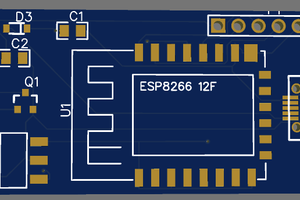VSCP, or Very Simple Control Protocol, is an open-source framework designed for enabling communication and control in decentralized systems. It serves as a versatile protocol stack that allows devices to communicate with each other and exchange information in a standardized manner.
Here are some key points about VSCP:
- Open Source: VSCP is an open-source project, meaning its specifications and source code are freely available for anyone to use, modify, and distribute. This openness fosters collaboration and innovation within the community.
- Decentralized Control: VSCP is designed to support decentralized control systems, where devices interact directly with each other without relying on a centralized server. This architecture promotes flexibility, scalability, and resilience in networked environments.
- Protocol Stack: VSCP defines a comprehensive protocol stack that includes various layers for communication, including transport, session, application, and device layers. This stack ensures that devices can communicate effectively and reliably across different hardware and network configurations.
- Device Independence: VSCP is designed to be hardware-independent, meaning it can be implemented on a wide range of devices, from microcontrollers to computers. This flexibility enables VSCP to be used in diverse applications, including home automation, industrial control, and IoT (Internet of Things) solutions.
- Standardized Messages: VSCP defines a set of standardized message formats for exchanging data between devices. These messages typically include information such as event codes, data values, and priority levels, allowing devices to communicate their status, control commands, and sensor readings effectively.
- Scalability: VSCP supports both small-scale and large-scale deployments, making it suitable for various applications, from simple home automation setups to complex industrial control systems. Its decentralized architecture and standardized communication protocols facilitate scalability and interoperability across different devices and environments.
Overall, VSCP provides a flexible and robust framework for building decentralized control systems, enabling devices to communicate, exchange data, and coordinate actions effectively in a wide range of applications.
 Åke Hedman
Åke Hedman
 Dimitar Ivanov
Dimitar Ivanov
 Sebastian Baca
Sebastian Baca

 Richard Mou Qingqi
Richard Mou Qingqi